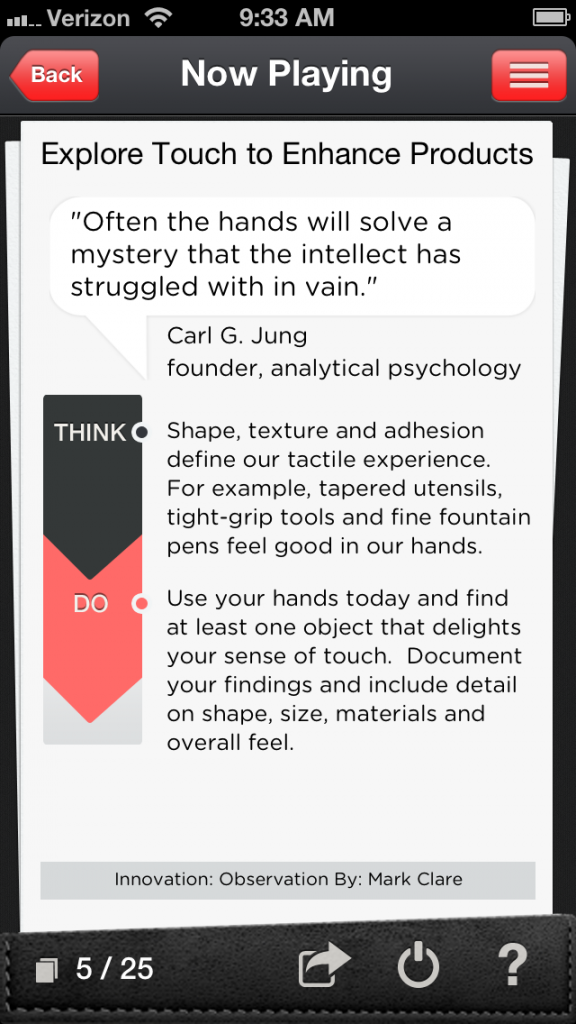125 Small Steps to Big Innovations
Tuesday, April 23rd, 2013 There can be little doubt that the race is on to improve how we innovate. Individuals, businesses, universities, economic regions and entire nations have a full on push to out innovate their competitors. New ways for making innovation faster, better and cheaper are sprouting up everywhere.
There can be little doubt that the race is on to improve how we innovate. Individuals, businesses, universities, economic regions and entire nations have a full on push to out innovate their competitors. New ways for making innovation faster, better and cheaper are sprouting up everywhere.
There is a lot of noise, some jewels and of course the fundamentals still hold true and dominate the game. One fundamental, often overlooked, is that innovation flows from specific skills and habits of mind. Innovators have a calling, think flexibly, experiment and are able to influence others to act on their ideas. These skills serve the innovator well even if they lack funding, organizational support or external incentives.
 The best way to develop innovation skills is to practice them regularly until they become habits. Innovation is not a special technique or method, it is a habit of mind and way of viewing the world. For example, the knowledge card to the right provides a simple way you can practice a habit of highly effective innovators. Innovators engage the world in a robust way. One way they do that is by using all of their senses. Getting in the habit of using all of your senses in a way that opens up creativity is not hard but it does take practice. Try playing this card five or six times or until you have built up some good notes on products and services that really delight your sense of touch. Not only will you have new experience to draw on for thinking creatively about features and functions you should be well on your way to using your hands in a more robust way to know the world. A very good dividend for a modest amount of effort.
The best way to develop innovation skills is to practice them regularly until they become habits. Innovation is not a special technique or method, it is a habit of mind and way of viewing the world. For example, the knowledge card to the right provides a simple way you can practice a habit of highly effective innovators. Innovators engage the world in a robust way. One way they do that is by using all of their senses. Getting in the habit of using all of your senses in a way that opens up creativity is not hard but it does take practice. Try playing this card five or six times or until you have built up some good notes on products and services that really delight your sense of touch. Not only will you have new experience to draw on for thinking creatively about features and functions you should be well on your way to using your hands in a more robust way to know the world. A very good dividend for a modest amount of effort.
To scale this approach we will need many knowledge cards covering the core skills and habits of highly effective innovators.